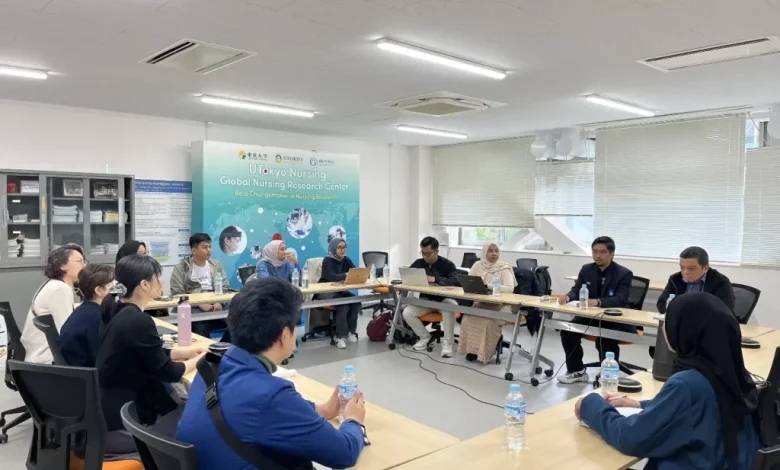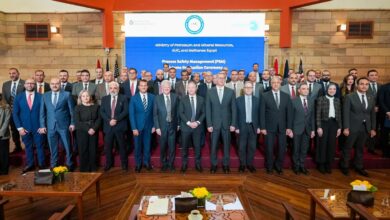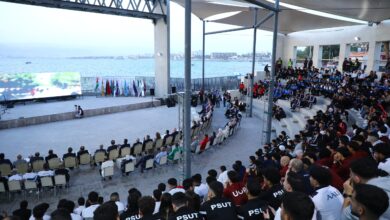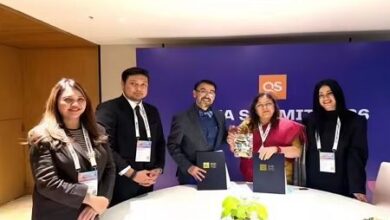Indonesian Delegation Strengthens Research Collaboration with University of Tokyo via Sakura Science Program

A delegation from Indonesia recently participated in a strategic meeting at the University of Tokyo as part of the Sakura Science Program (SSP). This gathering aimed to enhance international academic and research collaboration, with a focus on technology transfer, knowledge sharing, and human resource development.
Delegation Composition
The Indonesian delegation comprised representatives from Universitas Airlangga (UNAIR) and the Sepuluh Nopember Institute of Technology (ITS). Members of the UNAIR contingent included Nauvila Fitrotul Aini, Aziz Nashiruddin Habibie, Nur Arifah Astri, and Ninik Dwi Rahayu. ITS was represented by Hadziq Fabroyir, Gerry Sihaj, Muhammad Rafi Fillah, and Widian Sasi Disertasiani. The meeting also featured participation from Professor Amzul Rifin from the Dementia and Aging Research Center (DACRC) and key faculty from the University of Tokyo, including Professor Noriko Yamamoto-Mitani.
Commitment to Collaboration
During the discussions, Professor Amzul Rifin emphasized the Indonesian government’s commitment to enhancing research and technology collaboration, highlighting the importance of international partnerships in addressing complex global challenges. He noted that support from the embassy is essential in facilitating technology transfer and generating beneficial research outcomes.
Importance of International Research
Professor Yamamoto-Mitani acknowledged the contributions of the Indonesian delegation and underscored the importance of international research collaborations, particularly in health and technology. She indicated that such partnerships have the potential to yield innovative solutions with significant societal impact.
Opportunities for Knowledge Transfer
The meeting focused on exploring opportunities for technology and knowledge transfer, including potential joint research initiatives, expert exchanges, and capacity-building programs through training and scholarships.
Overview of the Sakura Science Program
The Sakura Science Program, initiated by the Japan Science and Technology Agency (JST), is designed to promote scientific and technological advancement while strengthening international relations. It provides an effective platform for collaboration among researchers, academics, and students from various countries.
Optimism for Future Collaboration
The Indonesian delegation expressed optimism regarding the potential for the program to foster closer ties between Indonesian universities and leading academic institutions in Japan. Hadziq Fabroyir noted the collaboration’s potential benefits for academic advancement and societal development, particularly in health and technology sectors.
Future Initiatives
Looking to the future, the established partnership among the Indonesian Embassy in Tokyo, the University of Tokyo, and the SSP delegation is anticipated to facilitate further initiatives. The support from the Indonesian government, coordinated through the embassy, is viewed as critical in accelerating such partnerships and providing access to funding, regulatory assistance, and international networking opportunities.
Recognizing Global Challenges
The discussions recognized the urgent need for interdisciplinary and international cooperation to tackle pressing global challenges, emphasizing health research as a key priority in light of current global issues, such as pandemics and climate change. The University of Tokyo reiterated its commitment to broadening collaborative opportunities for Indonesian researchers and academics, viewing this collaboration as a model for impactful international research.
Conclusion and Commitment
The meeting concluded with a mutual commitment to ongoing dialogue and the establishment of actionable steps to advance collaborative research initiatives, positioning the Sakura Science Program as an essential link for fostering global innovation and strengthening ties between Indonesia and Japan.
(Source: Universitas Airlangga)




